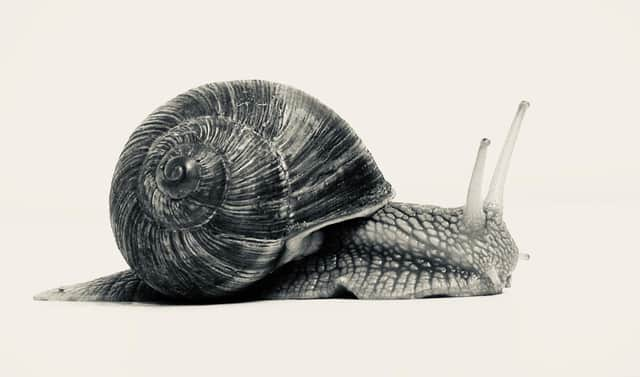The Scotswoman who changed the law after finding a snail in her ginger beer


May Donoghue, a shop assistant and single mum to three children, made legal history after reportedly finding the creature in her drink in 1928.
The historic case started to unfold when she went to meet her friend at the Wellmeadow cafe in Paisley one Sunday night.
Advertisement
Hide AdAdvertisement
Hide AdHer friend ordered and paid for a pear and ice cream ginger beer float for May but when the ginger beer was poured into her glass, it was claimed the rotten remains of a snail fell out of the opaque bottle.


May supposedly fell quickly ill with gastronteriris and shock diagosed by her doctor with a short spell in hospital to follow.
At the time, there was little legal recourse for such incidents, with a duty of care only established if a contract existed between parties or if a manufacturer was involved in the making of a dangerous product or acting fradulently.
In May’ s case, the contract with the cafe owner was made with the friend who paid for the float.
Solicitor Walter Leechman, of Glasgow, had already brought two cases against drinks manufacturer AG Barr after a mouse was allegedly found in a bottle of their ginger beer.
He lost both cases but readily took on May’s complaint, launching a legal bid against manufacturer David Stevenson who made the ginger beer served in the Paisley cafe.
The case was rejected by the Court of Session and was heard in the House of Lords, then the highest court in the land, in December 1931.
There, May secured permission to fight the case as a pauper meaning that she did not have to pay costs should her appeal fail
Advertisement
Hide AdAdvertisement
Hide Ad"I am very poor, and am not worth in all the world the sum of five pounds, my wearing apparel and the subject matter of the said appeal only excepted…,” her addadavit read, with Ms Donoghue’s minister supporting her statement.
In court, Leechman focussed on the fact that the ginger beer bottle served at the cafe was dark and opaque, meaning that his client could not see what was inside.
He argued that a manufacturer who puts a product on the market in a form that does not allow the consumer to examine it before using it, is liable for any damage caused.
A panel of judges heard the case, with Lord Atkin of Aberdovey giving the lead judgement in the case which was based on a Christian principle.
He said: "The rule that you are to love your neighbour becomes in law 'You must not injure your neighbour'; and the lawyer's question: 'Who is my neighbour?' receives a restricted reply.
"You must take reasonable care to avoid acts or omissions which you can reasonably foresee would be likely to injure your neighbour."
The words are widely regarded as the foundation of the modern law of negligence.
Manufacturer David Stevenson died less than a year after the Law Lords' decision against him
His estate settled May Donoghue's claim to the sum of £200, or just short of £14,000 a today’s prices.
A statue of May now stands in Paisley’s Ferguslie Park.
